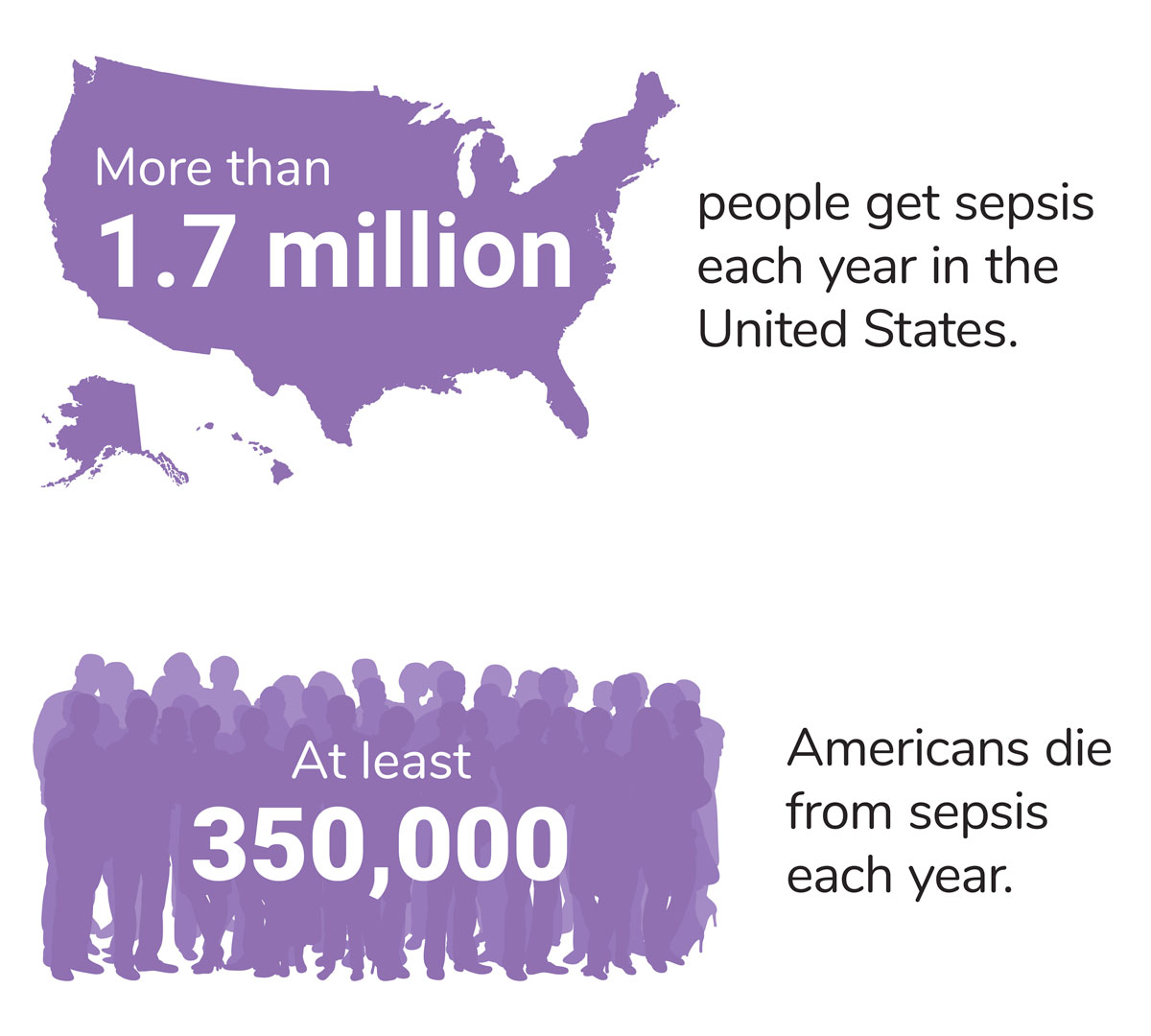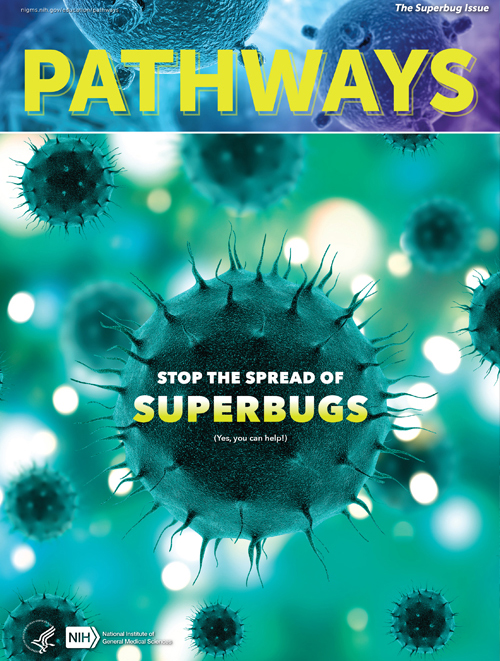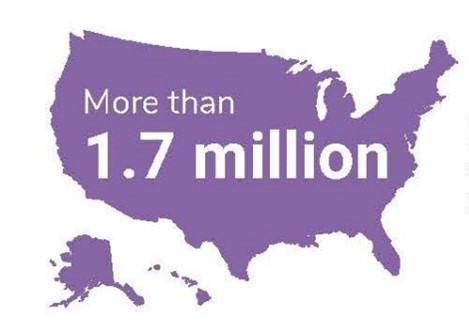Featured Topic: Sepsis
What Is Sepsis?
Sepsis is a potentially life-threatening condition that can occur when a person’s immune system no longer functions correctly. Infections, serious injury, or other insults to the body can cause a person to develop sepsis, which affects the whole body and can lead to organ failure and, in some cases, death.
 Credit: The Centers for Disease Control and Prevention, 2024.
Credit: The Centers for Disease Control and Prevention, 2024.A Serious Health Problem
Each year, according to CDC, at least 1.7 million adults in the U.S. develop sepsis, and at least 350,000 die as a result. Sepsis is a leading cause of death in hospitals and a main reason why people are readmitted to the hospital.
Who Gets Sepsis?
Anyone can develop sepsis. However, the people at greatest risk include the young and the older, as well as people with underlying health conditions such as diabetes, AIDS, cancer, or liver disease. Concurrent injuries, recent surgery, and consumption of medicines that suppress the immune system also make people more likely to develop sepsis.
Articles

A report that recommends future directions for NIGMS-funded research on sepsis.
NIGMS Educational Resources

Issue of Pathways student magazine focused on the basics of infectious diseases (grades 6-12).

A visual summary of the definition and causes of sepsis, along with NIGMS-funded sepsis research.
Other Resources
- Sepsis (MedlinePlus, NIH). Basic information, research, resources, and patient handouts..
- Sepsis (CDC). Information for patients, their families, and health care professionals, as well as statistics on sepsis.
- Surviving Sepsis Campaign. Guidelines for medical professionals on adult and child sepsis care, as well as tools and educational opportunities.
- Sepsis Alliance. Sepsis basics, education for patients and health care professionals, and advocacy.
